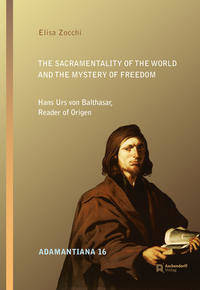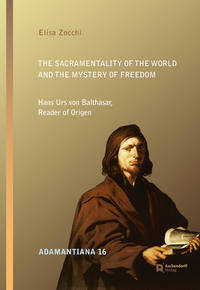
- Retrait gratuit dans votre magasin Club
- 7.000.000 titres dans notre catalogue
- Payer en toute sécurité
- Toujours un magasin près de chez vous
- Retrait gratuit dans votre magasin Club
- 7.000.0000 titres dans notre catalogue
- Payer en toute sécurité
- Toujours un magasin près de chez vous
Description
Hans Urs von Balthasar's interest for Origen can be placed within the movement of Ressourcement: until the very end of his life, the Swiss theologian declares his preference for the Alexandrian, among the Church Fathers. This book offers the first in-depth study of the Alexandrian's presence in the life of Balthasar. This is achieved not only considering his two specific books on Origen, Spirit and Fire and Le Mysterion d'Origene, but also analyzing specific Origenian ideas that played a decisive role in shaping Balthasar's own theological building. The book starts from a reconstruction of the context that brought Balthasar to study the Fathers and of the main polemical references in his interpretation, specifically facing the challenges posed by such movements as Neo-Scholasticism and the Idealistic interpretation of Neoplatonism. Balthasar's study of Origen emerges not as a disinterested, ahistorical reading, but rather as connected to the main issues facing 20th-century Catholic theology. The task of a historical reconstruction is accomplished also through to the analysis of theologians who played a fundamental role in Balthasar's interpretation of Origen: Henri de Lubac, Karl Rahner, and Karl Barth. The book moves then to analyzing the main theological elements traceable in the relationship between Origen and Balthasar: Eros, spiritual senses, freedom, and universal salvation. Throughout these ideas, Balthasar's attitude towards Origen emerges as dynamic and multifaceted. Against the charge of uncritical retrieval, his approach can be schematically understood with the help of five categories: silence, critique, enthusiasm, appreciation, and inspiration. Each category is approached and explained in correspondence with certain works within Balthasar's corpus. This dynamic approach to Origen, united to a familiarity with the Fathers that Lubac called "connaturality", makes Balthasar an example of the possibility of rethinking the role of the Church Fathers today.
Spécifications
Parties prenantes
- Auteur(s) :
- Editeur:
Contenu
- Nombre de pages :
- 363
- Langue:
- Anglais
- Collection :
- Tome:
- n° 16
Caractéristiques
- EAN:
- 9783402137413
- Date de parution :
- 18-02-21
- Format:
- Livre relié
- Format numérique:
- Genaaid
- Dimensions :
- 165 mm x 28 mm
- Poids :
- 154 g

Les avis
Nous publions uniquement les avis qui respectent les conditions requises. Consultez nos conditions pour les avis.






